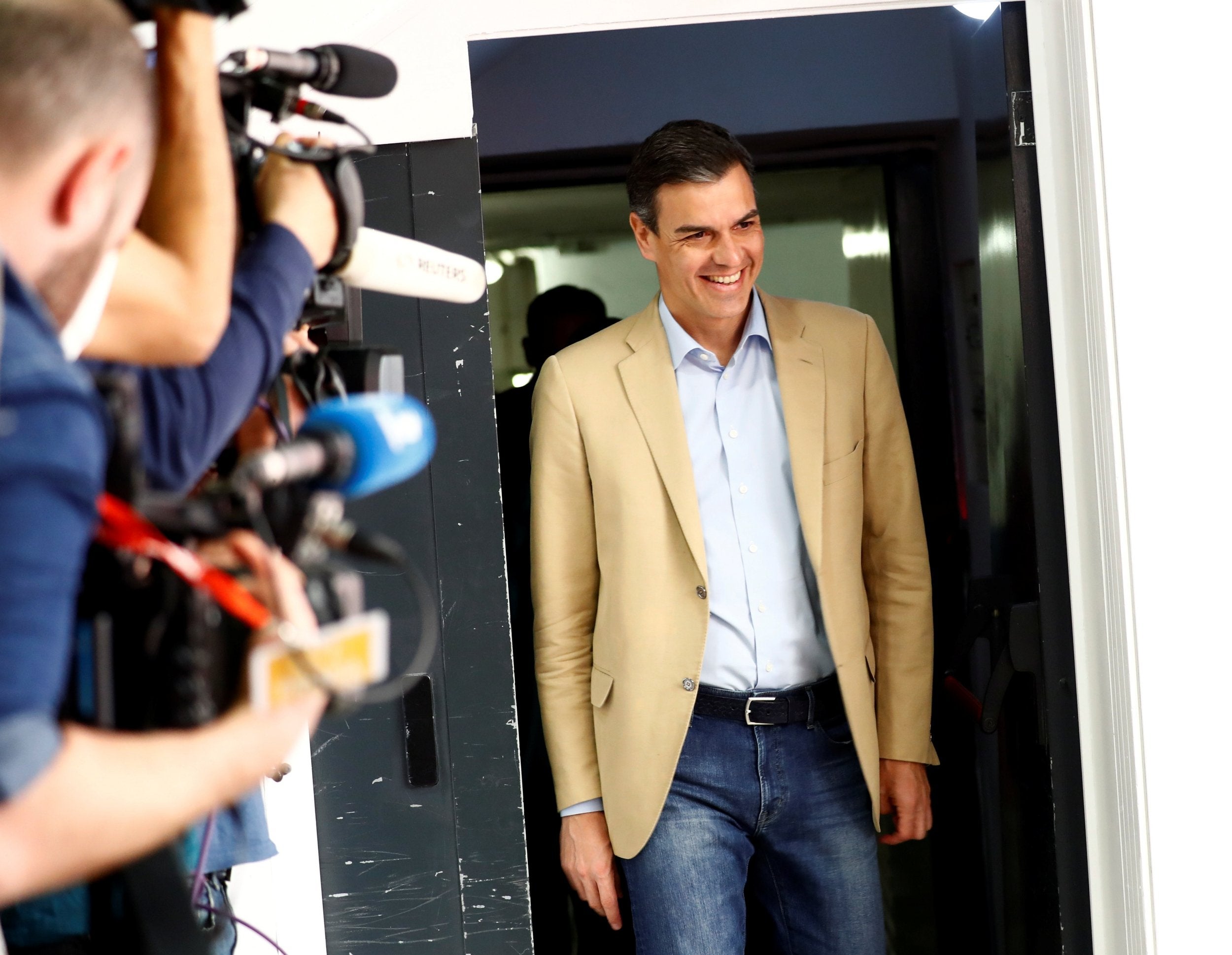Spanish elections: Pedro Sanchez to meet opposition parties as leftists Podemos argue for coalition
Socialist leader to meet with Partido Popular, Citizens, and Podemos – but only latter wants coalition

Your support helps us to tell the story
From reproductive rights to climate change to Big Tech, The Independent is on the ground when the story is developing. Whether it's investigating the financials of Elon Musk's pro-Trump PAC or producing our latest documentary, 'The A Word', which shines a light on the American women fighting for reproductive rights, we know how important it is to parse out the facts from the messaging.
At such a critical moment in US history, we need reporters on the ground. Your donation allows us to keep sending journalists to speak to both sides of the story.
The Independent is trusted by Americans across the entire political spectrum. And unlike many other quality news outlets, we choose not to lock Americans out of our reporting and analysis with paywalls. We believe quality journalism should be available to everyone, paid for by those who can afford it.
Your support makes all the difference.The acting Spanish prime minister will meet with the leaders of the country’s main opposition parties next week as the first step in what are expected to be difficult negotiations to form a government.
Pedro Sanchez’s centre-left PSOE party came top in elections on Sunday but fell short of a majority, meaning he will require the support of other parties in order to govern.
The socialist leader is starting the long process by meeting with the leaders of the conservative Partido Popular, the liberal nationalist Citizens, and the leftist Podemos parties, it was announced on Wednesday.
Of these groups, only the last, Podemos, is keen on forming a coalition – while the first two have ruled out close cooperation with PSOE.
Mr Sanchez’s party has indicated that it wants to govern alone as a minority – relying on other parties for ad hoc support.
But Podemos’s leader Pablo Iglesias argued in an op-ed for the El Pais newspaper on Wednesday that PSOE should seek a formal coalition with his group, arguing that “the presence of Unidas Podemos is essential for the government to be stable and left-wing”.
He argued that Mr Sanchez’s party alone is outnumbered by the combined forces of the right-wing parties, which he said would “generate instability” and force the administration to rely on them to pass policy.
Even together PSOE and Podemos would not have a majority of their own – and would have to rely on at least one other party for support to pass legislation. The Spanish parliament contains a constellation of smaller regionalist parties, including some who advocate independence for their regions from Spain. It was however Mr Sanchez’s inability to reach an accommodation with these forces earlier in the year that originally led to him calling a snap election.
The largest regionalist party, the Republican Left of Catalonia (ERC), which advocates Catalan independence, said earlier this week that it would not write Mr Sanchez a “blank cheque” to govern, but that it was willing to cooperate.
The ERC said it would seek discussions with PSOE about the lifting of court cases against pro-independence politicians, and the possibility of an independence referendum for Catalonia, as the price of cooperation.
The centre-left PSOE won 28.7 per cent of the vote, the conservative Partido Popular own 16.7 per cent, the liberal nationalist Citizens won 15.9 per cent, and Unidos Podemos won 14.3 per cent of the vote. Far-right party Vox won 10.3 per cent, with smaller regionalist parties picking up the rest of the support.
Join our commenting forum
Join thought-provoking conversations, follow other Independent readers and see their replies
Comments